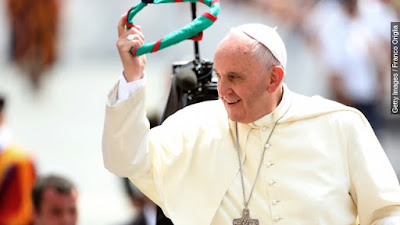John 10:22-30 At that time the festival of the Dedication took place in Jerusalem. It was winter, and Jesus was walking in the temple, in the portico of Solomon. So the Jews gathered around him and said to him, "How long will you keep us in suspense? If you are the Messiah, tell us plainly." Jesus answered, "I have told you, and you do not believe. The works that I do in my Father's name testify to me; but you do not believe, because you do not belong to my sheep. My sheep hear my voice. I know them, and they follow me. I give them eternal life, and they will never perish. No one will snatch them out of my hand. What my Father has given me is greater than all else, and no one can snatch it out of the Father's hand. The Father and I are one.”
Reflection We have all experienced listening and not listening; being listened to and not being listened to. It reminds me of a scene from the movie "The Life of Brian,” the scene is the sermon on the mount and the viewer is standing at the back of the a large crowd when Jesus says , "Blessed are the meek." And an old woman asks the person next to her, "What did he say?" "Blessed are the Greeks." Then Jesus says, "Blessed are the peacemakers." A bystander kind of scratches her head and repeats, "Blessed are the cheese makers,” then passes the good news along. Listening is not simple. Speaking is not plain. It is multilayered.
Listening has a lot to do with our expectations. When we are like sheep, vulnerable and expecting goodness and blessing from our shepherd, we are inclined to hear good news or blessing no matter what the circumstance. So the Greek woman in the crowd hears …"blessed are the Greek.”
When we are like sheep we hear the shepherd's voice and it reaches beyond our ears to the deepest truest part of our selves. It is there, in Spirit, that we receive eternal life. Does eternal life mean the our bodies will never die? No. Eternal life is life in the Spirit that hears the message deeper than words and sees beyond external appearances of separation, fear, loss and death. This is what Jesus meant when praying, “The glory that you (Father) have given me I have given them (that would be us) so that they may be one as we are one. I in them and you in me, that they may become completely one…” (John 17.22-23) Still the shepherd’s message is hard to hear.
We have been conditioned to hear bad news rather than blessing. This prevents us from listening deeply. Our prejudices and fears are like little officials who live inside us and constantly evaluate what we hear, make judgments about the speaker, sure up our defenses and cling to our beliefs. Beliefs such as,"I know the world revolves around the earth because we humans are the center for everything." To really listen we must set aside our interior dialogues, judgements and beliefs. When we pause and are inclined to hear blessing, we listen into the place of the eternal, the place where the distinction between me, you and God dissolves and we meet in Spirit. This is holy encounter, being in spirit and in truth.
If you found this post to be meaningful please share by clicking on the icons below. Thank you.









